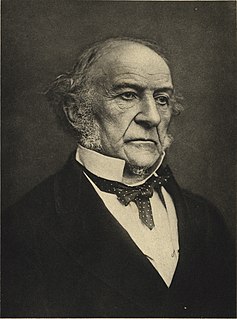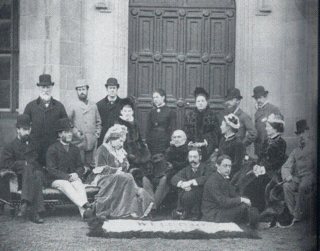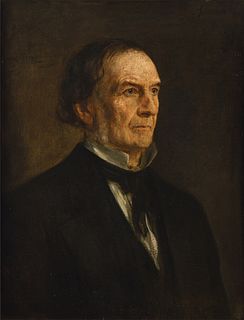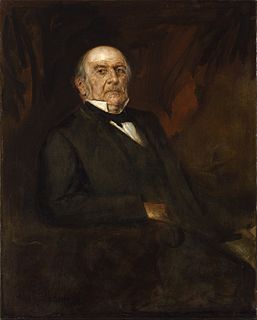 W
WWilliam Ewart Gladstone was a British statesman and Liberal politician. In a career lasting over 60 years, he served for 12 years as Prime Minister of the United Kingdom, spread over four terms beginning in 1868 and ending in 1894. He also served as Chancellor of the Exchequer four times, serving over 12 years.
 W
WCatherine Gladstone was the wife of British statesman William Ewart Gladstone for 59 years, from 1839 until his death in 1898.
 W
WGladstone's Library, known until 2010 as St Deiniol's Library, is a residential library in Hawarden, Flintshire, Wales. It is a Grade I listed building.
 W
WThe Government of Ireland Bill 1886, commonly known as the First Home Rule Bill, was the first major attempt made by a British government to enact a law creating home rule for part of the United Kingdom of Great Britain and Ireland. It was introduced on 8 April 1886 by Liberal Prime Minister William Gladstone to create a devolved assembly for Ireland which would govern Ireland in specified areas. The Irish Parliamentary Party under Charles Stewart Parnell had been campaigning for home rule for Ireland since the 1870s.
 W
WThe Midlothian campaign of 1878–80 was a series of foreign policy speeches given by William Ewart Gladstone, leader of Britain's Liberal Party. It is often cited as the first modern political campaign. It also set the stage for Gladstone's comeback as a politician. It takes its name from the Midlothian constituency in Scotland where Gladstone successfully stood in the 1880 election.
 W
WThe Conservative government under Benjamin Disraeli had been defeated at the 1868 general election, so in December 1868 the victorious William Ewart Gladstone formed his first government. He introduced reforms in the British Army, the legal system and the Civil Service, and disestablished the Church of Ireland. In foreign affairs he pursued a peaceful policy. His ministry was defeated in the 1874 election, whereupon Disraeli formed a ministry and Gladstone retired as Leader of the Liberal Party.
 W
WAfter campaigning against the foreign policy of the Beaconsfield ministry, William Gladstone led the Liberal Party to victory in the 1880 general election. The nominal leader of the Party, Lord Hartington, resigned in Gladstone's favour and Gladstone was appointed Prime Minister of the United Kingdom for a second time by Queen Victoria. He pursued a policy of parliamentary reform, but his government became wildly unpopular after the death of General Gordon in 1885. Gladstone was held responsible, and resigned, leaving the way free for the Conservatives under Lord Salisbury to form a government.
 W
WThe third Gladstone ministry was one of the shortest-lived ministries in British history. It was led by William Ewart Gladstone of the Liberal Party upon his reappointment as Prime Minister of the United Kingdom by Queen Victoria. It lasted five months until July 1886.
 W
WIn the 1892 general election, the Conservative Party, led by the Marquess of Salisbury, won the most seats but not an overall majority. As a result, William Ewart Gladstone's Liberal Party formed a minority government that relied upon Irish Nationalist support. On 3 March 1894, Gladstone resigned over the rejection of his Home Rule Bill and the Earl of Rosebery succeeded him.
 W
WWilliam Ewart Gladstone was Prime Minister of the United Kingdom on four separate occasions between 1868 and 1894. He was noted for his moralistic leadership and his emphasis on world peace, economical budgets, political reform and efforts to resolve the Irish Question. Gladstone saw himself as a national leader driven by a political and almost religious mission, which he tried to validate through elections and dramatic appeals to the public conscience. His approach sometimes divided the Liberal Party, which he dominated for three decades. Finally Gladstone split his party on the issue of Irish Home Rule, which he saw as mandated by the true public interest regardless of the political cost.